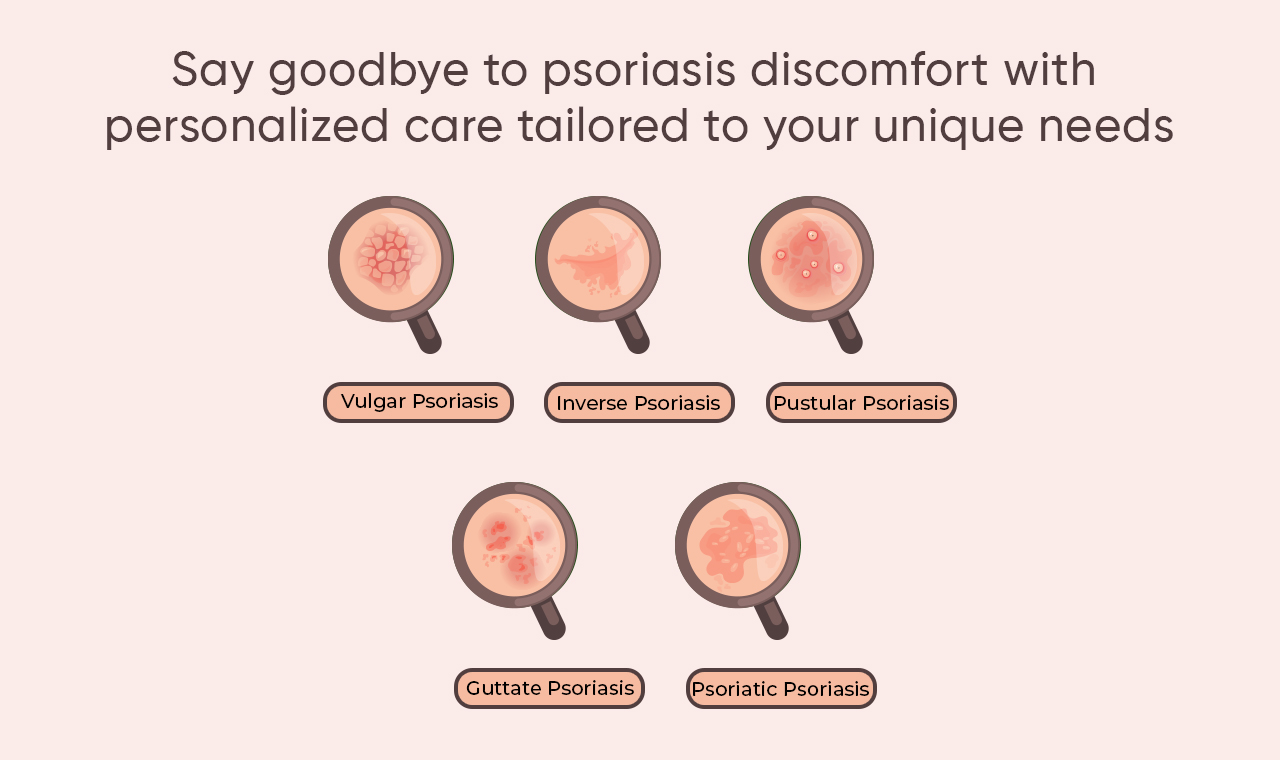Psoriasis is a chronic autoimmune disorder that affects millions of people worldwide, causing unpleasant symptoms and interfering with daily life. Misconceptions about this illness persist. Explore psoriasis and its treatment choices, as well as techniques for living well with the condition.
OVERVIEW:
Psoriasis is a skin condition distinguished by red, inflammatory patches of skin coated with silvery scales. The immune system targets healthy skin cells,
resulting in rapid turnover and plaque formation. Genetics, environmental circumstances, and immune system disorders all contribute to its development.
TYPES OF PSORIASIS:
- Plaque psoriasis
- Pustular psoriasis
- Inverse psoriasis
- Psoriatic arthritis
- Guttate psoriasis
- Erythrodermic psoriasis
CAUSES OF PSORIASIS:
Although the precise etiology of psoriasis is unknown, environmental and genetic factors are considered to play a role. Although it can affect anyone, psoriasis is more common in those with white or light-colored skin. It equally impacts all genders.
SYMPTOMS OF PSORIASIS:
- Thick, red patches of skin with silvery-white scales that can burn or itch
- Ridged or pitted nails
- Discoloration under the nails
- Crumbling, rough fingernails or toenails
- Stiff, swollen, or painful joints (psoriatic arthritis)
- Dry, cracked skin that flakes or bleeds.
Diagnosis: A physical examination and evaluation of one’s medical history are frequently used to diagnose psoriasis. Dermatologists may do a skin biopsy to confirm the diagnosis.
They may also assess the look and location of lesions, as well as any associated symptoms such as itching or pain.
DIET Plan for Psoriasis:
- Consume a lot of fruits, veggies, and lean meat in your meals.
- Cut down on carbohydrates from foods like sugar, white bread, and pastries.
- Steer clear of high-fat foods.
- Avoid alcohol
- Consume foods high in vitamin D.
TIPS FOR PSORIASIS:
- Moisturizing regularly to soothe dry skin.
- Using gentle skincare products to avoid irritation.
- Using gentle skincare products to avoid irritation.
- Communicating openly with healthcare providers about treatment concerns.
- Connecting with support groups or online communities for encouragement and advice.
Psoriasis is more than just a skin condition; it can significantly impact physical and emotional well-being. By understanding the intricacies of psoriasis
exploring treatment options, and adopting healthy lifestyle habits, individuals can take control of their condition and live fulfilling lives. Let’s spread awareness, foster support, and empower those affected by psoriasis to thrive.
If you have psoriasis and feel disappointed with conventional treatments, consider trying Positive Homeopathy. Which is safe and doesn’t have side effects like conventional medicine might. You can see a homeopathic doctor for advice on diet and treatment. You can complete the treatment at home. Overall, homeopathy can be a great option for treating psoriasis. Follow https://positivehomeopathy.com/homeopathy-treatment-for-psoriasis/ to know more about psoriasis.

